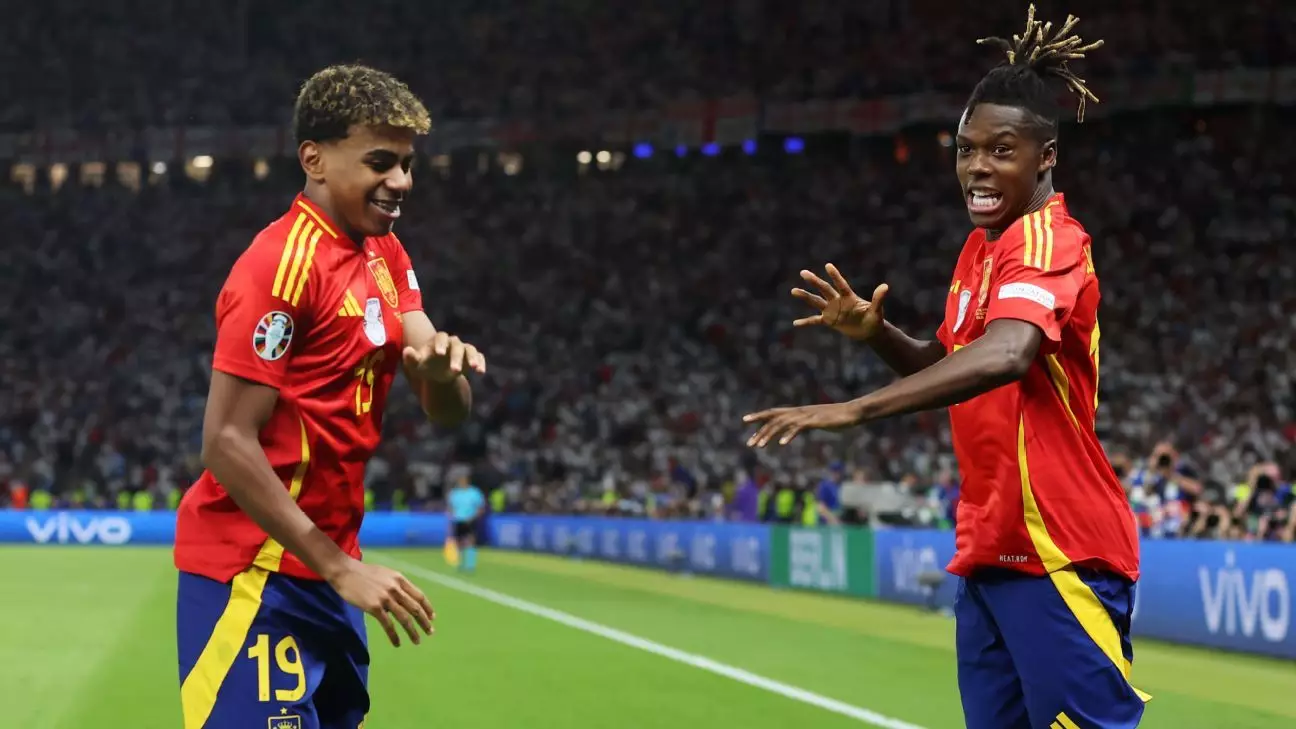Nico Williams, a promising talent from Athletic Club, recently shared insights into his tumultuous summer transfer window when he was pursued by none other than FC Barcelona. In conversations that have since drawn media attention, Williams revealed that he was in frequent contact with several Barcelona players, who urged him to make the leap to Camp Nou. While such overtures might seem flattering, they also spotlight the complexities of loyalty in modern football.
Williams’s decision to remain at Athletic Club stemmed from a desire to contribute to a team where he has spent his formative years. Athletic Club, known for its rich tapestry of tradition and unwavering commitment to Basque players, represents more than just a football club for him; it embodies his identity and roots. During his time in Spain’s Euro 2024 campaign, he displayed remarkable potential, reinforcing his value as an asset to his current team while also attracting interest from top clubs like Barcelona.
In his candid remarks, Williams humorously referred to some Barcelona players, including Lamine Yamal and Alejandro Balde, as “bastards” for constantly pushing him to join them in Catalonia. This playful condemnation underscores a significant facet of the football landscape today—peer influence. As young players navigate their professional paths, the encouragement or persuasive tactics of teammates can weigh heavily on their choices.
Moreover, the impact of social media cannot be overstated. Williams articulated his struggle to disconnect from the deluge of messages from Barcelona supporters, some of whom advocate for his transfer while others dismiss his potential fit within the squad. This shows the dual nature of social media, serving both as a platform for encouragement and a source of pressure, leaving young athletes to manage an emotionally charged environment.
Meanwhile, FC Barcelona is charting a new course after appointing Hansi Flick as their head coach, and initial observations suggest a shift in team discipline and morale. Flick’s tactical adjustments are showing dividends early in the LaLiga season, but the change in disciplinary measures has also caught players’ attentions. Midfielder Pedri noted that while former coach Xavi Hernandez employed a fine system, Flick has opted for a more straightforward, performance-based approach, emphasizing that a player arriving late will simply miss game time.
This pivot in management strategy could impact not only team cohesion but also how players perceive their responsibilities—fostering accountability without the fear of monetary penalties. The contrast between Flick’s methods and those of his predecessor sparks further dialogue about team culture in elite football clubs.
As the season unfolds, the questions surrounding Williams’s future will likely remain in the spotlight. Will the Barcelona pursuit rekindle next summer? For now, he appears committed to Athletic Club, a decision rooted in loyalty mixed with the desire for personal growth and success on his own terms. His experience illustrates that football, often viewed through the lens of metrics and trophies, is profoundly shaped by individual narratives, aspirations, and the intrinsic human connection within the sport.

